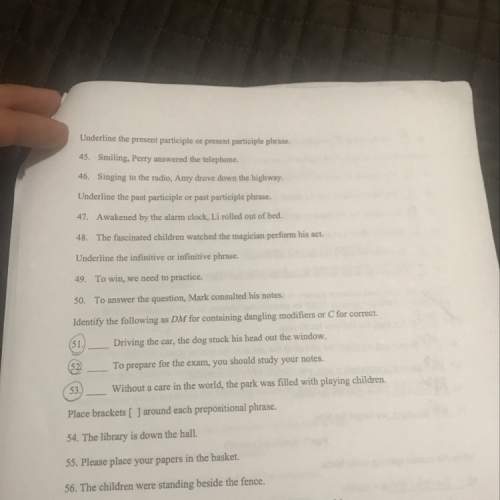
English, 21.05.2021 20:00 alvaradovanessa14
Afterwards
By Thomas Hardy
When the Present has latched its postern behind my tremulous stay,
And the May month flaps its glad green leaves like wings,
Delicate-filmed as new-spun silk, will the neighbours say,
'He was a man who used to notice such things'?
If it be in the dusk when, like an eyelid's soundless blink,
The dewfall-hawk comes crossing the shades to alight
Upon the wind-warped upland thorn, a gazer may think,
'To him this must have been a familiar sight.'
If I pass during some nocturnal blackness, mothy and warm,
When the hedgehog travels furtively over the lawn,
One may say, 'He strove that such innocent creatures should come to no harm,
But he could do little for them; and now he is gone.'
If, when hearing that I have been stilled at last, they stand at the door,
Watching the full-starred heavens that winter sees
Will this thought rise on those who will meet my face no more,
'He was one who had an eye for such mysteries'?
And will any say when my bell of quittance is heard in the gloom
And a crossing breeze cuts a pause in its outrollings,
Till they rise again, as they were a new bell's boom,
'He hears it not now, but used to notice such things'?
In the poem “Afterwards,” Hardy uses figurative language, including euphemism, to develop meaning and tone. What is the meaning of the figurative language used in the poem? How does the use of euphemism when addressing the idea of death affect the meaning? In your response, identify and interpret the use of euphemism and other figurative language; then explain its impact on the meaning and tone of the poem. Use evidence from the text to support your response. Your response should be two to three complete paragraphs.

Answers: 2


Another question on English

English, 22.06.2019 03:00
Read the lines from "there was a child went forth" and answer the question. and the apple-trees cover'd with blossoms, and the fruit afterward, and wood-berries, and the commonest weeds by the road; and the old drunkard staggering home from the out-house of the tavern, whence he had lately risen, and the school-mistress that pass'd on her way to the school, and the friendly boys that pass'd—and the quarrelsome boys, and the tidy and fresh-cheek'd girls—and the barefoot negro boy and girl, and all the changes of city and country, wherever he went. which poetic device is exemplified in this stanza? select all that apply. allegory anaphora imagery metaphor
Answers: 1


English, 22.06.2019 08:10
Ead this sentence from the evolution of useful things.the underlined phrases indicateaaking waterproof sandpaper would allow wet sanding,which in turn would cut down on dust, and thus be a greatmprovementpassing of timea directional change of positiona cause-and-effect relationshipsequence of events.save and exitmark this and retur
Answers: 3

English, 22.06.2019 09:00
Lesson 10: crossing borders: unit test “borders” 1.what does the mother’s refusal to state her nationality as canadian or american signify? a)that she resents governmental interference with her life b)that she identifies with neither country c)that she comes from somewhere else d)that she is stubborn and proud 4.the author’s chosen visual images,sensory details, and dialogue all convey a particular feeling in “delfino ii: diez in the desert.” thus feeling is known as: a)tone b)mood c)pathos 5.compare and contrast the poem “mexicans begin jogging” and the story “delfino ii: diez in the desert.” a)both are written about similar themes (immigration), but the story has a more serious mood than the poem b)both focus on mexican immigrants, but the story has a lighter tone than the poem. c)both main characters are afraid: diez is afraid of being caught smuggling people over the border, and soto is afraid of being caught working illegally. d)the tone in both selections is similar, but the subject matter differs slightly. 15. the tone of the poem “ka’ba” versus the tone of the poem “harlem ii” might be described as a)grateful vs ungrateful b)certain vs doubtful c) hurtful vs defeated d)safe vs dangerous
Answers: 1
You know the right answer?
Afterwards
By Thomas Hardy
When the Present has latched its postern behind my tremulous...
When the Present has latched its postern behind my tremulous...
Questions






English, 24.04.2021 09:20


Mathematics, 24.04.2021 09:20

History, 24.04.2021 09:20

Computers and Technology, 24.04.2021 09:20


Mathematics, 24.04.2021 09:20

Mathematics, 24.04.2021 09:20

Social Studies, 24.04.2021 09:20

Physics, 24.04.2021 09:20

Physics, 24.04.2021 09:20

Biology, 24.04.2021 09:20

English, 24.04.2021 09:20





